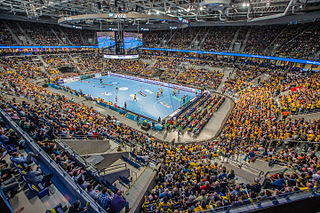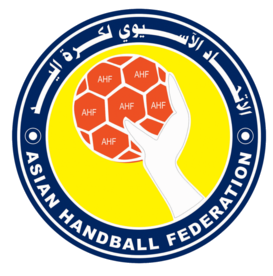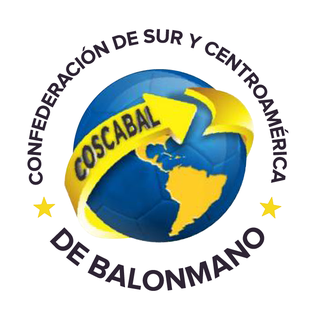
Handball is a team sport in which two teams of seven players each pass a ball using their hands with the aim of throwing it into the goal of the opposing team. A standard match consists of two periods of 30 minutes, and the team that scores more goals wins.
The European Women's Handball Championship is the official competition for senior women's national handball teams of Europe, and takes place every two years. In addition to crowning the European champions, the tournament also serves as a qualifying tournament for the Olympic Games and World Championship. As of December 2024, the only teams that have ever won the championship are Norway, Denmark, Hungary, Montenegro and France.

Gaelic games are a set of sports played worldwide, though they are particularly popular in Ireland, where they originated. They include Gaelic football, hurling, Gaelic handball and rounders. Football and hurling, the most popular of the sports, are both organised by the Gaelic Athletic Association (GAA). Women's versions of hurling and football are also played: camogie, organised by the Camogie Association of Ireland, and ladies' Gaelic football, organised by the Ladies' Gaelic Football Association. While women's versions are not organised by the GAA, they are closely associated with it but are still separate organisations.

Gaelic handball is a sport where players hit a ball with a hand or fist against a wall in such a way as to make a shot the opposition cannot return, and that may be played with two (singles) or four players (doubles). The sport, popular in Ireland, is similar to American handball, Welsh handball, fives, Basque pelota, Valencian frontó, and more remotely to racquetball or squash. It is one of the four Gaelic games organised by the Gaelic Athletic Association (GAA). GAA Handball, a subsidiary organisation of the GAA, governs and promotes the sport.

Handball at the Summer Olympics refers to two different sports. Field handball was introduced for men at the 1936 Summer Olympics in Berlin, but dropped after that. At the 1952 Olympics, field handball was a demonstration sport. (Indoor) handball was introduced for men at the 1972 Summer Olympics in Munich. Women's handball competition was introduced at the 1976 Summer Olympics in Montreal.

The European Handball Federation (EHF) is the umbrella organisation for European handball. Founded on 17 November 1991, it is made of 50 member federations and two associated federations, and is headquartered in Vienna, Austria.

The handball or handpass is a ball-passing skill in the sport of Australian rules football. As throwing the ball is not allowed in Australian football, passing to a fellow player are executed either by kicking, or by a controlled "punch" with one hand holding the ball while the other knocking it into flight. Handballing is the primary means of disposing the ball quickly and over short distances in Australian football.

The African Handball Confederation is the administrative and controlling body for African team handball. Founded on 15 January 1973 after the 2nd All-Africa Games in Lagos (Nigeria), it represents the national handball associations of Africa under the supervision of the International Handball Federation (IHF).

The Oceania Continent Handball Federation (OCHF) is the governing body for the Olympic sport of Handball in Oceania. It was founded in 2014 and is affiliated to the International Handball Federation (IHF) and Asian Handball Federation (AHF).

The Asian Handball Federation (AHF) is the governing body of handball and beach handball in Asia. It has 44 member countries, mostly located on the Asian continent, but excludes the transcontinental countries with territory in both Europe and Asia – Azerbaijan, Georgia, Russian Federation and Turkey – which are instead members of European Handball Federation (EHF). Three other states located along the western fringe of Asia – Cyprus, Armenia and Israel – are also EHF members. Hong Kong and Macau, although not independent countries, are also members of the AHF.

Khaleej Club is a Saudi Arabian professional football club, located in Saihat, Eastern Province of Saudi Arabia.
The IHF Beach Handball World Championships is an international beach handball competition contested by the men's and women's national teams of the member federations/associations of International Handball Federation (IHF), the sport's global governing body.

Beach handball is a team sport where two teams pass and bounce or roll a ball, trying to throw it in the goal of the opposing team. The game is similar to standard handball, but it is played on sand instead of on a solid floor. Because the ball loses most of its bounce on sand, there is little to no dribbling, and players instead perform more passing as the rules of travelling still apply.

The International Handball Federation (IHF) is the administrative and controlling body for handball and beach handball. IHF is responsible for the organisation of handball's major international tournaments, notably the IHF World Men's Handball Championship, which commenced in 1938, and the IHF World Women's Handball Championship, which commenced in 1957.

The handball tournaments at the 2012 Olympic Games in London was held from 28 July to 12 August in the Olympic Park.
The IHF Men's Handball World Championship has been organized indoor by the International Handball Federation since 1938.
The IHF Women's Handball World Championship has been organized by the International Handball Federation since 1957. European teams have won every time except 1995 where South Korea won as the first team outside Europe and 2013 where Brazil won as the first American team. The biggest winners are Russia and Norway with four titles each.

The North America and the Caribbean Handball Confederation (NACHC) is the governing body of the Olympic sport of handball and beach handball in North America and the Caribbean. It is affiliated to the International Handball Federation (IHF).

The South and Central America Handball Confederation (SCAHC) (Spanish: Confederación Sur y Centro Americana de Balonmano (COSCABAL)) is the governing body of the Olympic sport of Handball and Beach handball in South America and Central America. It is affiliated to the International Handball Federation (IHF).
The IHF Wheelchair Handball World Championship is the official competition for senior national Wheelchair handball teams of the world.















